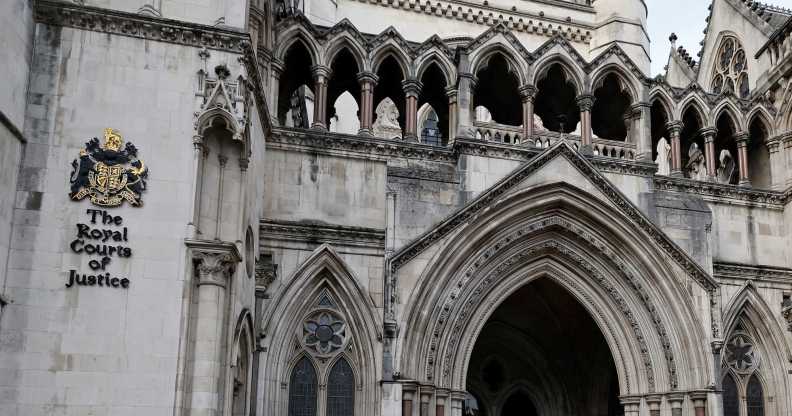Years-long NHS waiting times for trans healthcare are totally lawful, High Court rules

The High Court has ruled trans waiting times are lawful (TOLGA AKMEN/AFP via Getty Images)
The long waiting times faced by trans people seeking gender-affirming care have been deemed lawful by the High Court.
Last year, four trans people, trans-led charity Gendered Intelligence and the Good Law Project were given permission to mount a ground-breaking judicial review against NHS England.
The groups who mounted the case are set to appeal the ruling
The legal challenge was brought on the grounds that waiting times faced by transgender people accessing affirming healthcare at gender-identity clinics were unlawful.
Originally, the case was brought forward on six grounds but only five were pursued.
These are: breaching statutory regulation, breaching statutory duty, directly and indirectly discriminating against two of the claimants and failing to comply with the 2010 Equality Act.
The NHS has a statutory requirement that at least 92 per cent of patients using the healthcare service should have a referral-to-treatment time of no more than 18 weeks.
However, thousands of trans people in England face extensive waiting lists – between three and five years depending on what part of the country they live in – for even an initial appointment at one of the NHS’ Gender Identity clinics.
Today (Monday, January 16), the High Court ruled that the waiting times were legal.
The judge, Mr Justice Chamberlain, dismissed the claims on a number of grounds and concluded that while the NHS has a duty to ensure the 18-week target is met, failure to “achieve that standard” is not a “breach”.
Court documents show that the judge cited several reasons for the long waits, including increased demand for the service and trouble employing specialists.
“The evidence has shown that long waiting times have increased despite the NHS’s willingness to increase very substantially the resources available for this service area,” he said.
The Good Law Project said they were “disappointed” to lose the case, “especially when the loss impacts on people already discriminated against in society”.
The Good Law Project’s legal director, Emma Dearnaley, said: “This result is obviously a deep disappointment for us and the trans community.
“It’s our first loss in this space, having previously brought two successful cases. We have decided to appeal this decision.”
Claimant Eva Echo, an activist and public speaker, said: “I’m extremely disappointed by the decisions over all, which only serve to prolong the mental-health suffering of the trans community, and I welcome the chance to appeal.
“I also welcome clarification that trans youths are protected under the Equality Act 2010, which will provide more people with protection against discrimination.”
Responding to the ruling, Stonewall’s chief executive, Nancy Kelley, said: “Really disappointed to see the judge say that waiting years and years for a first appointment is lawful. Trans people aren’t second-class citizens.
“They deserve better than this.”

